Abstract
Cholesterol feeding of rats with colon cancer induced by dimethylhydrazine results in reduced survival and an increased incidence of metastatic colon cancer. As cholesterol may be implicated in the induction or maintenance of the metastatic process, an experiment was designed to determine whether rats with colon cancer would benefit from the removal of cholesterol from the diet. Female Wistar rats were treated with a colon cancer-inducing regimen of dimethylhydrazine (40 mg/kg/week for 10 weeks) while being fed on a standard cholesterol-containing rat pellet diet. After two rats had died spontaneously of histologically proven adenocarcinoma of the colon at 24 weeks, the remaining rats were randomly allocated in groups of 15 to one of three dietary regimens. Group S continued to receive standard pellet diet, group V were fed on Vivonex alone and group VC were fed Vivonex plus cholesterol (10 mg/100 ml Vivonex). Each group was assessed for survival and incidence of histologically proven metastatic disease. There were no differences in either survival or incidence of metastases when groups S and VC were compared. In the cholesterol deprived group V, however, there was a significant increase in survival compared with groups S and VC (p less than 0.02) and this was due to a significant reduction in the incidence of metastases (p less than 0.05). Cholesterol deprivation therefore benefits rats with established colon cancer induced by dimethylhydrazine by improving survival and reducing the incidence of metastases.
Full text
PDF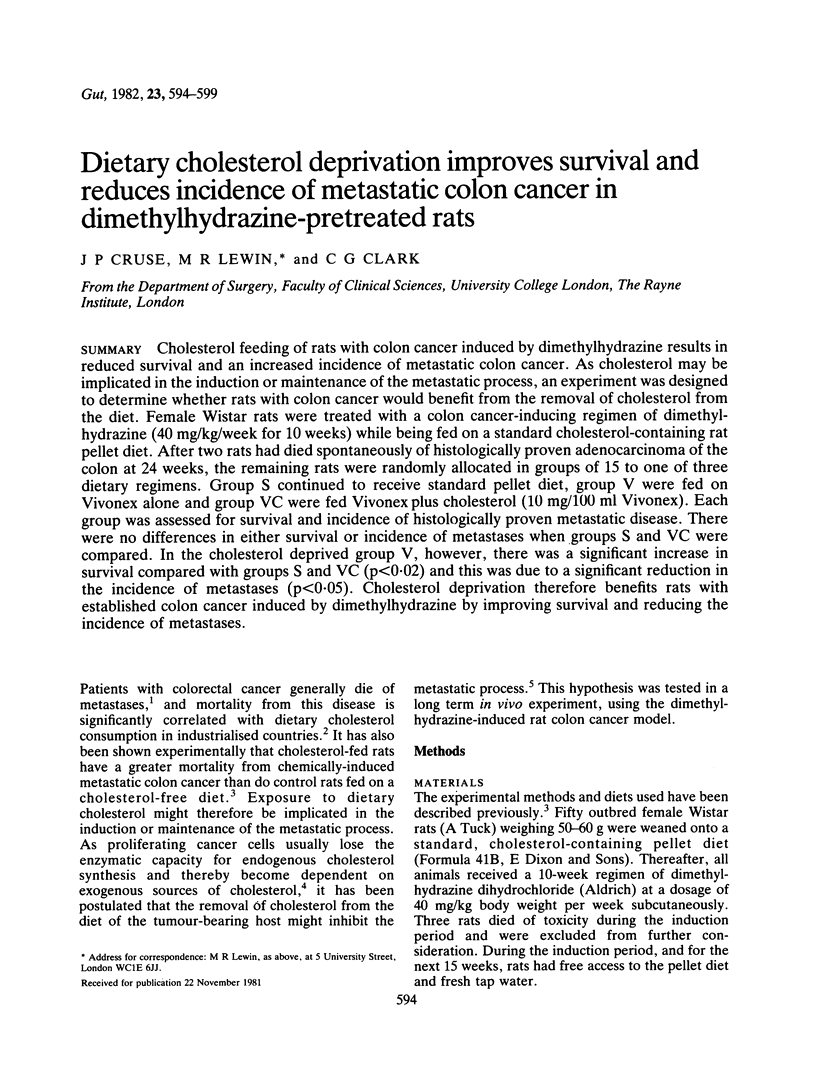
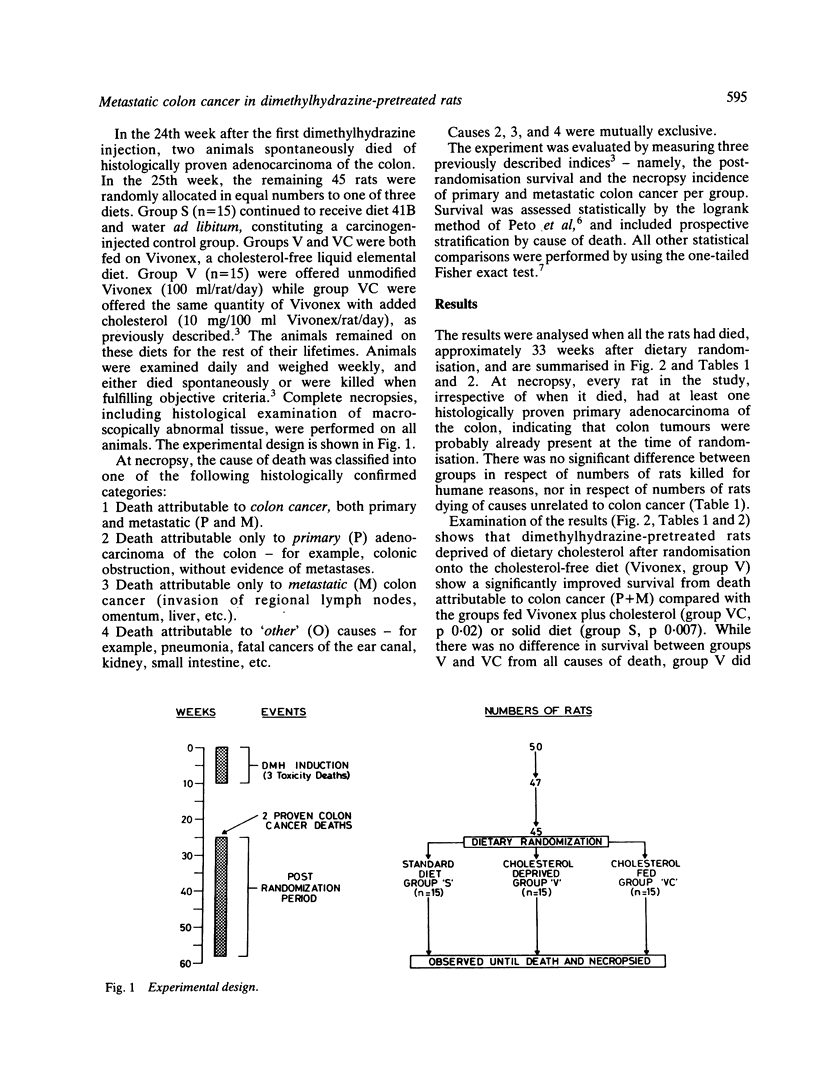

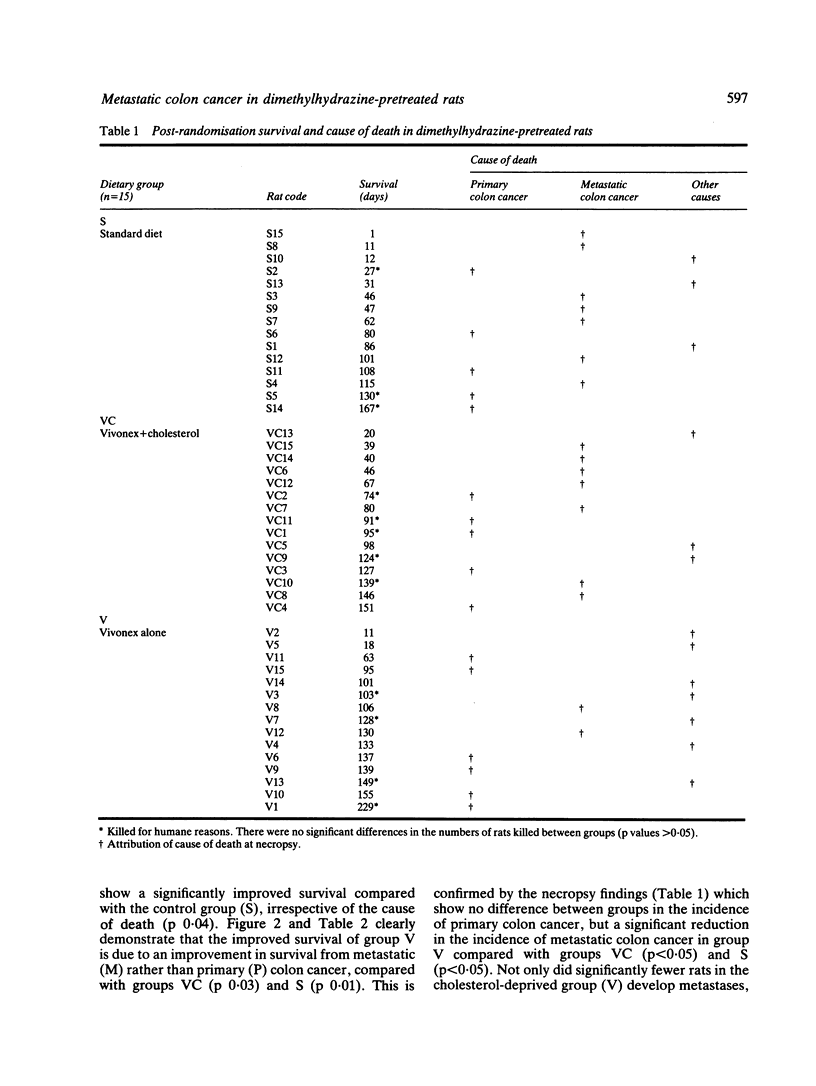
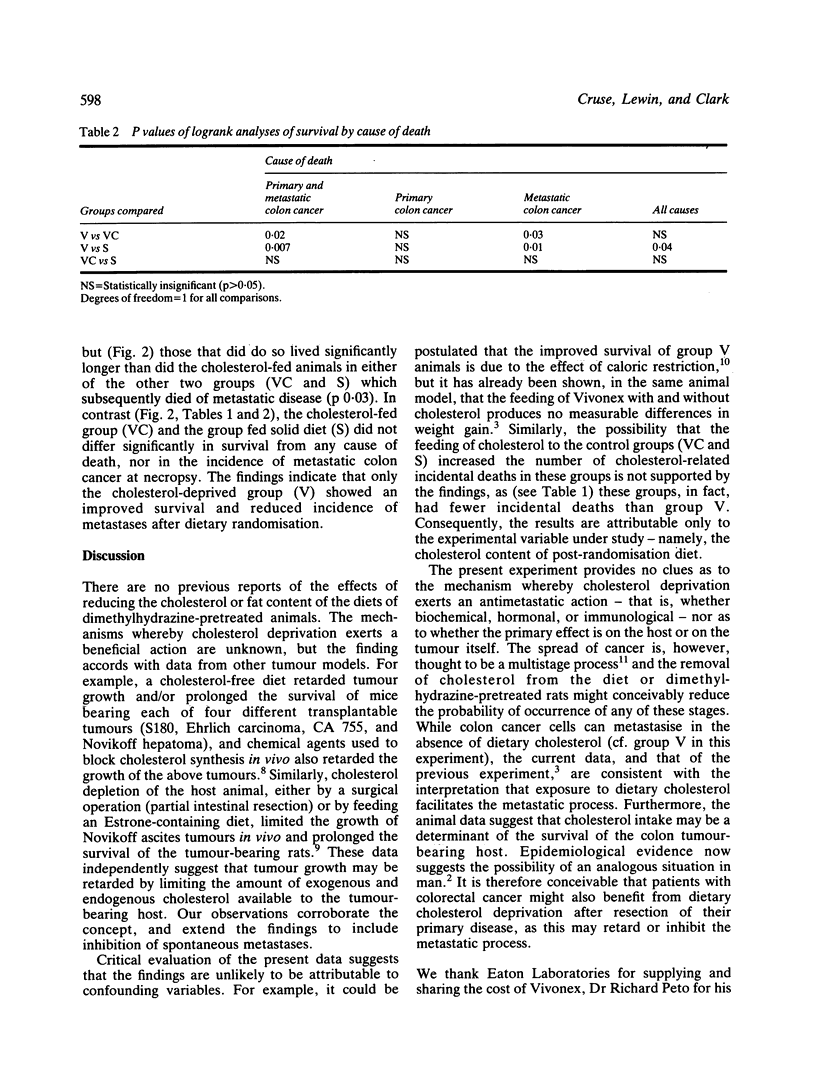
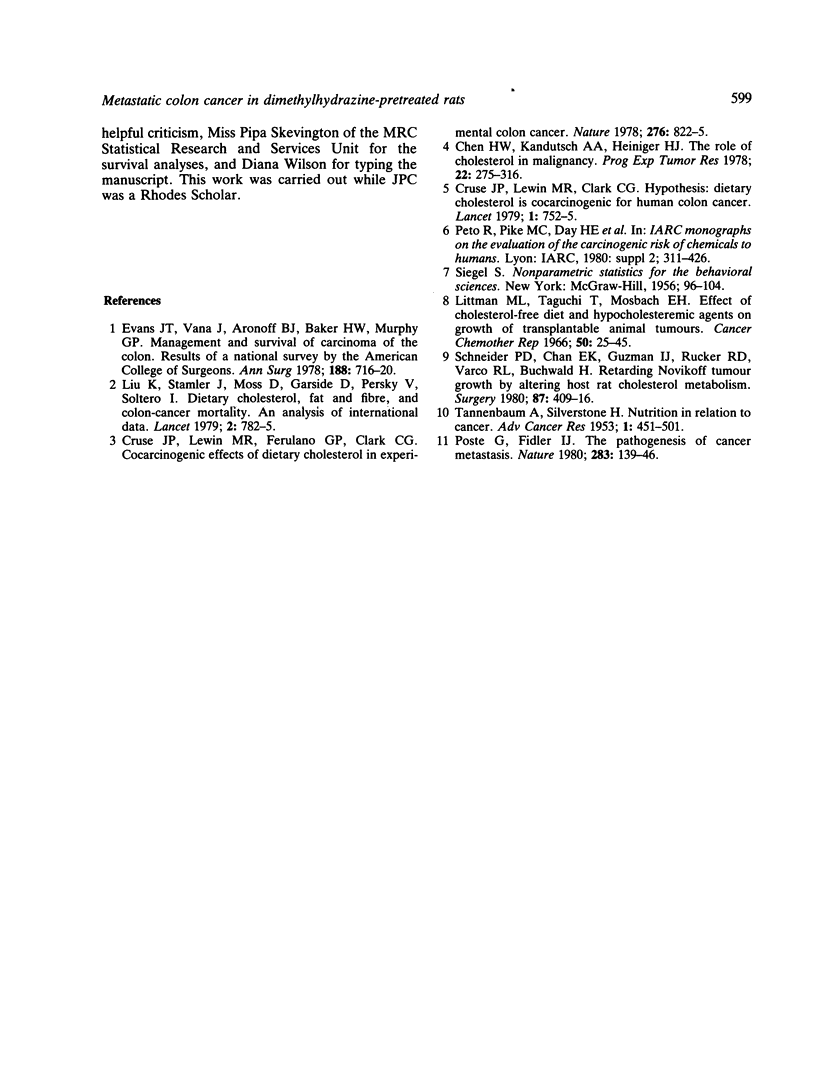
Selected References
These references are in PubMed. This may not be the complete list of references from this article.
- Chen H. W., Kandutsch A. A., Heiniger H. J. The role of cholesterol in malignancy. Prog Exp Tumor Res. 1978;22:275–316. doi: 10.1159/000401203. [DOI] [PubMed] [Google Scholar]
- Cruse J. P., Lewin M. R., Ferulano G. P., Clark C. G. Co-carcinogenic effects of dietary cholesterol in experimental colon cancer. Nature. 1978 Dec 21;276(5690):822–825. doi: 10.1038/276822a0. [DOI] [PubMed] [Google Scholar]
- Cruse P., Lewin M., Clark C. G. Dietary cholesterol is co-carcinogenic for human colon cancer. Lancet. 1979 Apr 7;1(8119):752–755. doi: 10.1016/s0140-6736(79)91209-1. [DOI] [PubMed] [Google Scholar]
- Evans J. T., Vana J., Aronoff B. L., Baker H. W., Murphy G. P. Management and survival of carcinoma of the colon: results of a national survey by the American College of Surgeons. Ann Surg. 1978 Dec;188(6):716–720. doi: 10.1097/00000658-197812000-00002. [DOI] [PMC free article] [PubMed] [Google Scholar]
- Littman M. L., Taguchi T., Mosbach E. H. Effect of cholesterol-free, fat-free diet and hypocholesteremic agents on growth of transplantable animal tumors. Cancer Chemother Rep. 1966 Jan-Feb;50(1):25–45. [PubMed] [Google Scholar]
- Liu K., Stamler J., Moss D., Garside D., Persky V., Soltero I. Dietary cholesterol, fat, and fibre, and colon-cancer mortality. An analysis of international data. Lancet. 1979 Oct 13;2(8146):782–785. doi: 10.1016/s0140-6736(79)92126-3. [DOI] [PubMed] [Google Scholar]
- Peto R., Pike M. C., Day N. E., Gray R. G., Lee P. N., Parish S., Peto J., Richards S., Wahrendorf J. Guidelines for simple, sensitive significance tests for carcinogenic effects in long-term animal experiments. IARC Monogr Eval Carcinog Risk Chem Hum Suppl. 1980;(2 Suppl):311–426. [PubMed] [Google Scholar]
- Poste G., Fidler I. J. The pathogenesis of cancer metastasis. Nature. 1980 Jan 10;283(5743):139–146. doi: 10.1038/283139a0. [DOI] [PubMed] [Google Scholar]
- Schneider P. D., Chan E. K., Guzman I. J., Rucker R. D., Varco R. L., Buchwald H. Retarding Novikoff tumor growth by altering host rat cholesterol metabolism. Surgery. 1980 Apr;87(4):409–416. [PubMed] [Google Scholar]
- TANNENBAUM A., SILVERSTONE H. Nutrition in relation to cancer. Adv Cancer Res. 1953;1:451–501. doi: 10.1016/s0065-230x(08)60009-3. [DOI] [PubMed] [Google Scholar]


